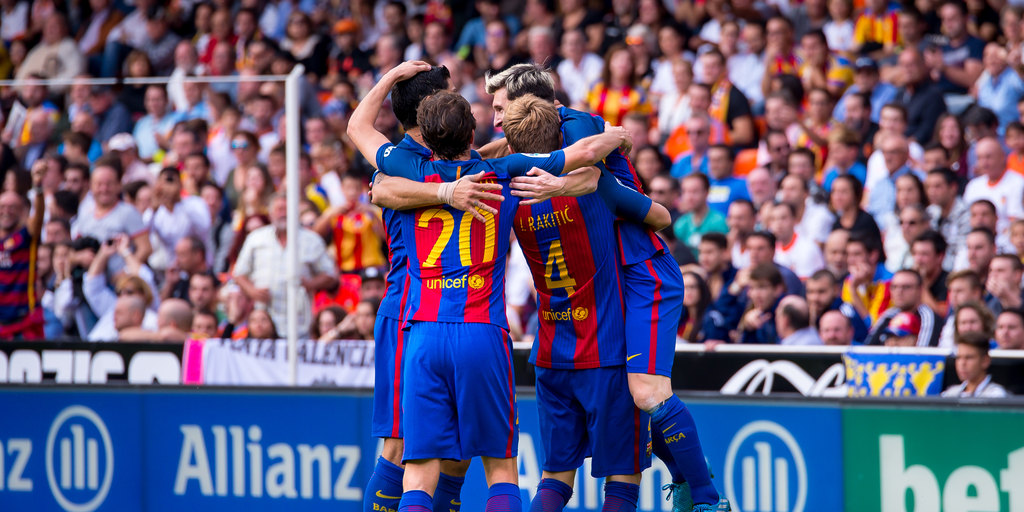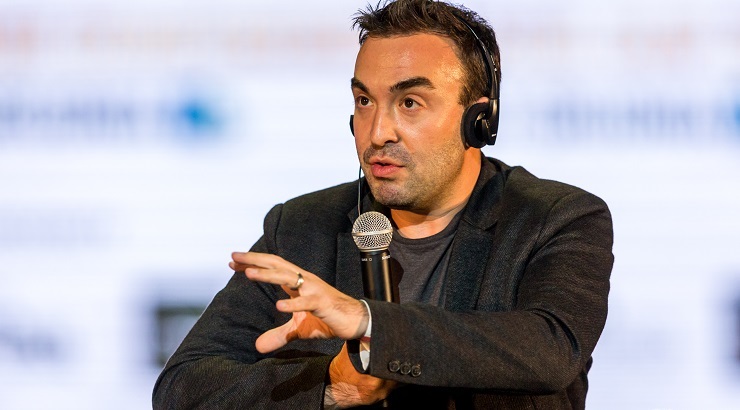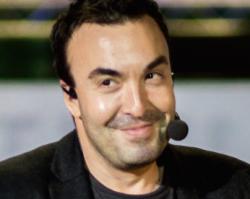On Barcelona’s Amazing Comeback – Defending & Accomplishing the Comeback With Dan Abrahams
What does it take to achieve a big comeback on the soccer field?
Soccer’s Comeback King – Barcelona had to dig deep and pull off the near impossible, and overcome a huge deficit ….
SoccerToday’s columnist Dan Abrahams shares his insights and advice on success being a game of mindset and how understanding this can help players of all ages. A global sport psychologist and author specializing in soccer, Abrahams is based in England and works with professional soccer players in the English Premier League (EPL).
Abrahams has helped hundreds of soccer players – many of them who play in the English Premier League (EPL) and others who play across Europe. A recent example of his work includes helping Yannick Bolasie make an enormous impact on the EPL for Crystal Palace. Abrahams has held contracts with QPR, Fulham, and West Ham among other clubs and works quietly, behind the scenes with many coaches from top clubs across Europe.

I’m writing this article a couple of days after one of the greatest comebacks in sporting history, and certainly one of the most exciting games of soccer the world has seen.
Going into the second leg of the last 16 round of the UEFA Champions League, FC Barcelona trailed Paris St. Germain by four goals. They had suffered a rare thrashing at the hands of the French side in Paris in the first leg.
 What happened next was remarkable. Barcelona scored an early goal through Luis Suarez to give them hope, and by half-time they were three-nil up and had reduced the deficit to one.
What happened next was remarkable. Barcelona scored an early goal through Luis Suarez to give them hope, and by half-time they were three-nil up and had reduced the deficit to one.
But all hopes of an incredible come back were put on hold when Cavani scored an away goal for Paris midway through the second half.
And then it happened. On 88 minutes, as the game started to die away Barcelona struck. They scored and then scored again a few minutes later.
Local hero Sergi Roberto then scored with the final kick of the game to leave the score six-one and see Barcelona through six-five.
The roar and the celebrations of the Barca fans literally shook the ground beneath their feet. As Roberto’s dramatic goal went in the cheers from Barcelona’s fans was recorded on the Richter scale – a measurement used to record earthquakes – at the Jaume Almera Institute of Earth Sciences which is 500 metres away from the stadium.
Who doesn’t and wouldn’t feel for the Paris players. In the heat of battle they played with fear, on the back foot and with a focus on trying not to lose.

In the next two articles on SoccerToday I’m going to discuss preparation for big crunch matches, and specifically ways to create a comeback and ways to prevent one.
In my first article I’m going to give you some tips to strive to create a comeback. Here’s some thoughts.
Advice for Professional or Youth Soccer Players – It is Important to Stay Patient
It was Steven Gerrard in his post-match analysis on British TV who said that Barcelona stayed patient as they played. They didn’t panic. They didn’t try to force a comeback. They just played as they always do. They passed in triangles and small spaces and suffocated PSG
Perhaps there was a little more urgency. Perhaps the tempo increased slightly. This happens naturally…the team who is trailing will increase their pace of play. But take note – this is different to over-trying. This is different to playing with panic.
Panic will see your muscles tighten. Your coordination will be shattered. Your first touch will be damaged. Your game intelligence will atrophy – you’ll find yourself out of position, you’ll play with tunnel vision and your anticipation will slow.
You’ve got two goals to score in ten minutes? Relax, stay patient. Play it simple. Play quick but not rushed.
You’ve got a goal to try to create in injury time? Relax, stay patient. Build up from the back with speed but without tension.
Advice for Professional or Youth Soccer Players – Stay Present
To help you stay patient, remove all thoughts of how long there is to go in the match. When you think about the clock you’ll stifle your game. You’ll play with an abundance of emotion rather than with pinpoint intellect.
Take each second and each minute as it comes. Focus on playing on your toes, with great body language. How you hold yourself on the pitch from minute to minute is an essential tool when trying to stay switched on and when trying to contribute to a comeback.
Talk to yourself – helpful self-talk is also vital when trying to get back into a game.
Remind yourself of your responsibilities – you’re your game as you compete. Positive self-talk is also imperative. Be optimistic – you’re not out of it until the very last kick of the game. As Barcelona proved this week, you can launch even the most unrealistic of comebacks at the very latest stages of the game.
Advice for Professional or Youth Soccer Players – Be Vocal
Finally, be vocal. Help others. You can’t make a monumental comeback on your own, and your teammates need your support.
Encourage with a loud voice. Engage in positive gestures. Remind your mates of their responsibilities and help them stay upbeat.
You’re two-nil down with five minutes to go – keep your voice loud and super positive.

Your opposition have just scored their third goal and three ahead of you with twenty to play – reassure and boost, embolden and inspire – your voice is a weapon of support that others will never tire of.
Keep going, keep working, keep moving…no matter the score. Keep finding space and keep closing down the space…no matter the score. Keep passing, keep tackling, keep carrying the ball…no matter the score. You never know…you may just cause the same seismic shift in the final moments of your game that the Barcelona players created. You may just shake the ground around you.
Advice for Professional or Youth Soccer Players – You Can Achieve the Comeback. In soccer, anything is possible.
Dan Abrahams is a global sport psychologist specializing in soccer. He is based in England and has some of the leading turn-around stories and case studies in English Premier League history.
Abrahams is sought after by players, coaches and managers across Europe and his soccer psychology books are international bestsellers. He is formerly a professional golfer, is Lead Psychologist for England Golf and he holds a degree in psychology and masters degree in sport psychology.
Related Articles: Dan Abrahams on SoccerToday






